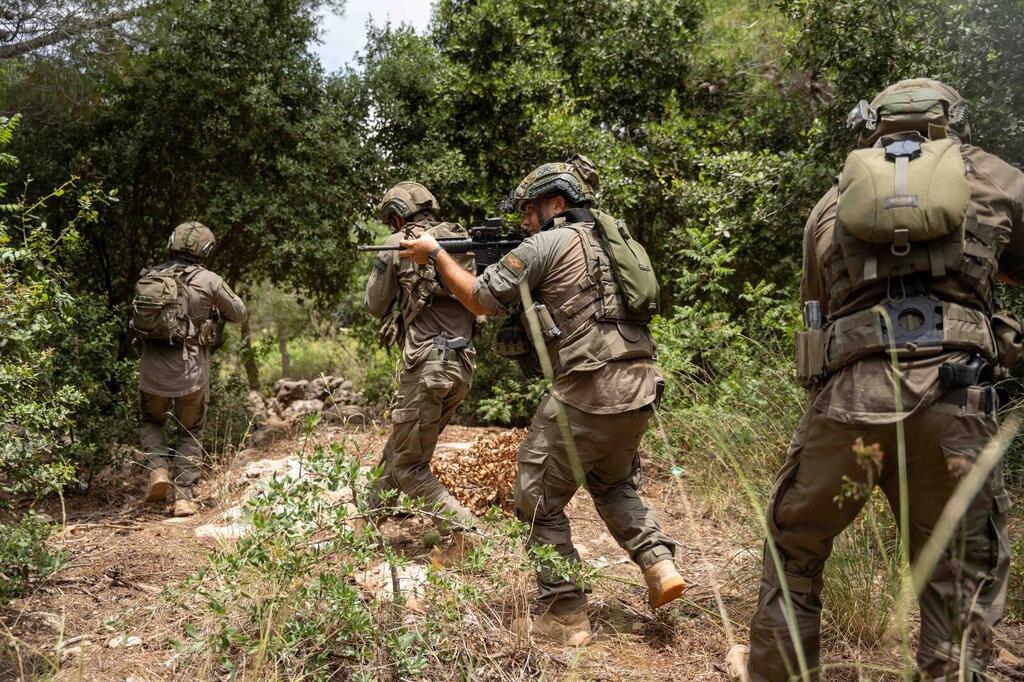Getting your Trinity Audio player ready...
Amid the heartbreaking toll of casualties in Gaza, a growing concern looms within the IDF over a critical shortage of combat soldiers and the immense strain on regular, career and reserve forces. All this while the government seems destructively detached from the military's vital needs.
Reservists operating in Rafah
(Video: IDF Spokesperson's Unit)
Many might dismiss this as another power struggle over money and influence, but the reality is far more dire. This situation is nothing less than a strategic warning, akin to the four letters the Intelligence Division sent to Prime Minister Benjamin Netanyahu before the war, as revealed by Ynet and Yedioth Ahronoth.
On Sunday, for example, the government had been expected to approve raising the exemption age for reservists from 40 to 41, with reserve officers serving until age 46, though between Friday and Sunday this proposal disappeared from the agenda.
If that isn't enough, the military is issuing extraordinary call-up orders for six infantry brigades to undertake 40 days of operational deployment, following a continuous 110-day deployment plus a brief 40-day respite.
Even without core studies, the math is simple: 190 days of reserve duty (more than half a year) within less than a calendar year, with more to come. And that's not even considering the very real possibility of a full-scale campaign in the north. While some reservists have been serving continuously since October 7, this involves a large-scale call-up of combat units on a vastly different scale.
"The burden right now is exceptional," said a senior officer in the General Staff. "A few are bearing a load that is not just military but also economic and familial. The situation necessitates a different conscription law to increase the standing army and reduce the burden on reservists."
Meanwhile, the government might as well be talking to a wall. In fact, Ynet and Yedioth Ahronoth have learned the IDF is concerned about a seemingly technical detail that has not yet been addressed: Under the existing conscription law, mandatory service is supposed to be shortened by two months, from 32 months to 30. The IDF demands a return to 36 months of service, but this has yet to happen.
Needs over gimmicks
While the political system spins in circles, the General Staff is formulating a multi-departmental plan to expand the military structure. Their work is currently as crucial as what is happening in the field, and instead of concocting gimmicks, the political leadership should approach them with these words: "What do you need?"
The answer is becoming increasingly clear. A senior officer involved in the matter says that the number of battalions in the Gaza Division will need to double from four (as it was on the eve of the war) to eight. "Anyone who wants security and a sense of security, including residents returning to communities and kibbutzim, cannot settle for less," he said.
2 View gallery


Even soldiers on all fours are carrying the burden in Rafah
(Photo: IDF Spokesperson's unit)
In the Galilee Division, it is estimated that the five battalions will need to expand to 10, or even 12, to hold the line against Hezbollah. The number of mixed-gender battalions, in borders considered "quiet," will also double from five to 10. During the war, the air defense array was expanded both in manpower and in building additional Iron Dome batteries.
And this pertains only to defense. The IDF will also need to update its offensive force structure, with at least two new reserve divisions, one "light" (infantry) and one "heavy" (armor and artillery). An immediate lesson from the war will also necessitate an increase in engineering units, with an emphasis on the Yahalom unit (Special Operations Engineering Unit), which has become a focal point due to handling Hamas' tunnel empire. They need to neutralize the threat that intelligence failed to properly assess, and for that a combat doctrine was developed on the fly, making the Engineering Corps a central activity hub with corresponding needs.
Not your run-of-the-mill political struggle
There are seven steps the state has no choice but to implement as a strategic national plan: extending mandatory service to 36 months, reducing the number of soldiers discharged after already enlisting, tightening the criteria for psychological exemptions, addressing the issue of women receiving religious exemptions, recruiting women into military service instead of national service, increasing combat recruitment rates in cities with weak statistics and, of course, a historical shift in the status of ultra-Orthodox men.
Some may think this is merely another political struggle on social media, where debates rage over caricatures as if the future of the nation is at stake.
But the reality is that the situation is on the brink of boiling over and even collapsing: the reserve burden on a population already struggling with the cost of living, endless tasks in three hot zones (Gaza, the north, and the West Bank), the erosion of regular brigades for eight consecutive months, and equipment urgently needing maintenance to avoid endangering our forces.
If we don't act now to address these issues, we will face even more brutal wars with a crippled army and a fragmented society. For those who haven't yet understood: This constitutes a genuine emergency.






